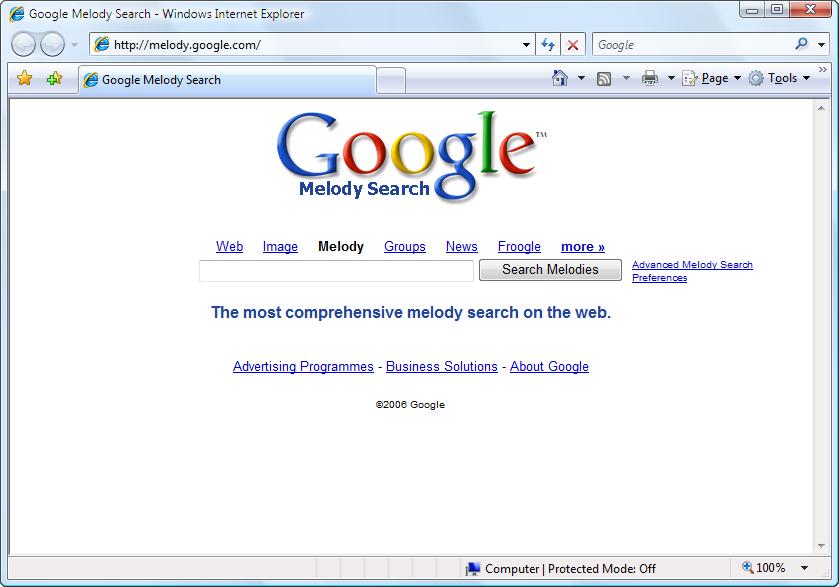The Cambridge Inter-Collegiate Christian Union are an irritating thorn in the side of moderate Christians throughout Cambridge. And I don’t think I’m being harsh, either. This week’s TCS contains an enormous feature on what CICCU think about sex. Sex outside marriage, contraception, and homosexuality feature strongly. It’s a hoot.
Ideally I’d give you a link to the article. TCS, unfortunately, haven’t bothered to update their website since February 2005. So instead I’m going to have to type some bits.
So – Sex outside of marriage?
The heart of the issue is what the God who made the universe wants and what his stance is. As Christians we believe that God has spoken to us through the Bible and that in the Bible he has revealed what is best for us. He clearly tells any form of sexual relationship outside heterosexual marriage is wrong. It is not wrong because it breaks a religious rule. Rather, it is wrong because it is rejecting our Creator and saying that we know best. The Bible has a high view of sex but says it is something precious and to be enjoyed within marriage.
Contraception?
The official Roman Catholic view- that using contraception is sinful – is unjustified biblically. Contraception is probably a neutral thing but in so far as it encourages extra-marital sex it is unhelpful. There may be perfectly legitimate reasons why a married couple may want to use contraception although it should also be noted that the Bible often links sex with having children – although not exclusively. It is a question of balance. Other tricky issues arise where the contraception is abortive and is therfore murder.
What about gay marriage?
The Bible teaches that marriage is only between a man and a woman and that marriage is the only context for sexual relationships. For someone of homosexual orientation, total abstinence would therefore be required. Further, the Bible is clear that any form of homosexual relationship is sinful – again because it is saying we know better than our Creator. We shouldn’t single out practising homosexual sex as worse than any other sin. The Bible is clear that even lusting after another person is a sexual sin. God dislikes all sin equally because he is perfect. To anyone who says homosexuality is OK nowadays, God retorts in the Bible, “I the Lord do not change,” and, “Jesus Christ is the same yesterday and today and forever.” God’s moral standards do not change.
Now, I personally find lots of this rather silly.
The first and most blatant point I would like to take issue with is the simple one-dimensional viewpoint which the CICCU representative seems to have of God. “It is wrong because it is rejecting our Creator and saying that we know best.” Everything’s very simple, isn’t it? Unfortunately this view of God requires a full-frontal lobotomy to take on board. Furthermore, I’m happy to believe God may know best – but I’d like to know how we’re going to derive that from the Bible. The Bible in itself is an enormous tome written across a span of centuries by different people for different reasons. Many of the translations available to us have political motivations underlying their every word. I wonder how the Bible can be clear on anything.
The OED gives a definition of concubine:
A woman who cohabits with a man without being his wife; a kept mistress.
The Bible mentions the word concubine 36 times (according to Bible Gateway), admittedly only in the Old Testament. It does seem as if the practice of keeping mistresses was very common among early Hebrews. Not quite “The Bible has a high view of sex but says it is something precious and to be enjoyed within marriage.”
They’re right about the “high view of sex” part, however. Consider these verses from the Song of Solomon:
16. My lover is mine and I am his;
he browses among the lilies.
17. Until the day breaks
and the shadows flee,
turn, my lover,
and be like a gazelle
or like a young stag
on the rugged hills.
All this seems to stand in contrast to the hard line of our correspondent.
She knows better than the founders of the Catholic Church as well. “The official Roman Catholic view- that using contraception is sinful – is unjustified biblically.” Thanks, that’s nice to know. My first problem is here again – glib statements convince nobody. Luckily I’ve not had my lobotomy yet and like to think I am capable of argument and higher thought. I’m not going to stand and take these sort of points without some sort of evidence.
The official Roman Catholic view probably stems from this passage in Genesis 38:
8. Then Judah said to Onan, “Lie with your brother’s wife and fulfill your duty to her as a brother-in-law to produce offspring for your brother.” 9. But Onan knew that the offspring would not be his; so whenever he lay with his brother’s wife, he spilled his semen on the ground to keep from producing offspring for his brother. 10. What he did was wicked in the LORD’s sight; so he put him to death also.
The difficulty comes when we try to decide which meaning is more appropriate. We can view this passage in two contradictory ways:
- Onan spilled his seed on the ground and was put to death. This was because he wasted his sperm. Therefore wasting sperm is a sin and contraception is, by extension, wrong.
- Onan spilled his seed on the ground and was put to death. This was because he failed to fulfill his duty to his brother’s wife and produce offspring for his brother. This was the sin for which he was killed.
Arguments about this passage will rage on. Personally I choose to ignore the issue – there’s no point worrying about doing the right thing when I don’t know what the right thing is. Unfortunately CICCU have produced their own interpretation and will stuff it down the throat of anyone who’ll listen.
My second big point concerns the changeability of God. Admittedly this quote exists in the Bible (Leviticus 20):
13. If a man lies with a man as one lies with a woman, both of them have done what is detestable. They must be put to death; their blood will be on their own heads.
In fairness, however, this occurs in a long list of things one must and mustn’t do. Leviticus 11 has a complicated set of instructions about what sorts of meat are clean – still kept to by Jews eating Kosher food. It’s commonly accepted that this part of God’s commandments was to do with keeping the populace healthy – don’t eat pigs ’cause they’re full of disease. If we aren’t going to complain about Kosher food anymore then why should we worry about other things in the list. Surely God knows best about what we should eat, and we shouldn’t defy Him?
Moving on, we come to the New Testament. The OT tells a story of a wrathful God who weighs in on the side of the Israelites, helping them slay their enemies in horrific ways. Jesus came to change all this. Originally we were sacrificed for our sins. But now God himself takes our sin upon Himself and becomes a sacrifice for us. Yet apparently “God does not change.” The Bible is sufficient evidence that God’s outlook on and involvement with humanity quite clearly has changed.
Mark 12
28. One of the teachers of the law came and heard them debating. Noticing that Jesus had given them a good answer, he asked him, “Of all the commandments, which is the most important?”
29. “The most important one,” answered Jesus, “is this: ‘Hear, O Israel, the Lord our God, the Lord is one. 30. Love the Lord your God with all your heart and with all your soul and with all your mind and with all your strength.’ 31. The second is this: ‘Love your neighbour as yourself.’ There is no commandment greater than these.”
Matthew 7
1. “Do not judge, or you too will be judged. 2. For in the same way you judge others, you will be judged, and with the measure you use, it will be measured to you.
3. “Why do you look at the speck of sawdust in your brother’s eye and pay no attention to the plank in your own eye? 4. How can you say to your brother, ‘Let me take the speck out of your eye,’ when all the time there is a plank in your own eye? 5. You hypocrite, first take the plank out of your own eye, and then you will see clearly to remove the speck from your brother’s eye.
Whether you think homosexuality is bad or not, you have no right to judge those who practice it. Love your neighbour as yourself – whatever you may think of them. Love appears sadly lacking in the quoted article. Later on it states that people deserve to go to hell for breaking God’s commandments. Gee, thanks.
The problems I have with this interview are manifold, but the two main ones are thus:
- If you’ve been asked to give an interview to a Cambridge University student newspaper about your views, as a Christian, about sex, then there’s a right way to do it, and a wrong way to do it. Making bland statements without any argument only reveals your lack of thought and understanding. Blind faith convinces nobody; what is faith without understanding? CICCU’s mentality denies this, leaving no room for interpretation.
- Judging others is wrong. God dislikes sin, but came to earth as man to save us from it. Sin isn’t an automatic ticket to hell, although it may be an invitation to be laughed at by some shallow-minded fools.
The sort of mental process required to swallow this swill is unacceptable to anyone at Cambridge – where I like to think we are trained to think critically. This form of evangelism is fundamentally wrong, and does ordinary Christians a fundamental dis-service. Articles like this make me embarassed to profess my faith in case I am associated with those discussed above.
I’ll leave you with a quote on a more general form of evangelism from our College Chaplain:
There are CofE Churches I know of that make upfront evangelism their speciality, going overboard with door-knocking, street preaching and the Alpha method, but in doing so have lost all sense of what it means to be Anglican in their spirituality. “Evangelism” in that kind of pushy, recruiting way is really quite out of step with Anglican spirituality. You can have one or the other, but not both. I’m not saying it’s wrong to recruit; just that the style of recruiting will affect completely what you are recruiting people to. It’s still possible, I think, to have the doors of the Church wide open (metaphorically) without adopting a sales-and-marketing style evangelism.

